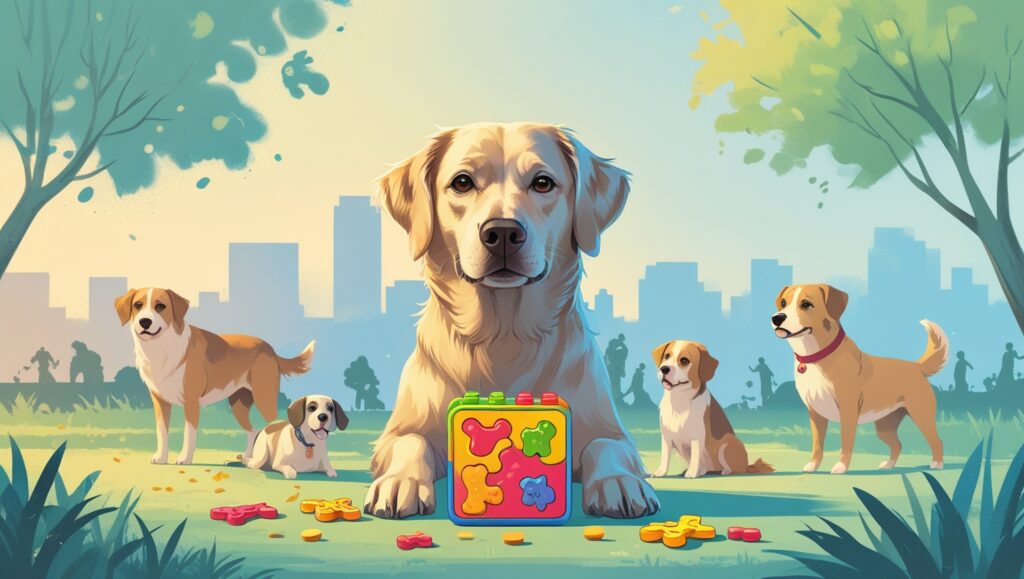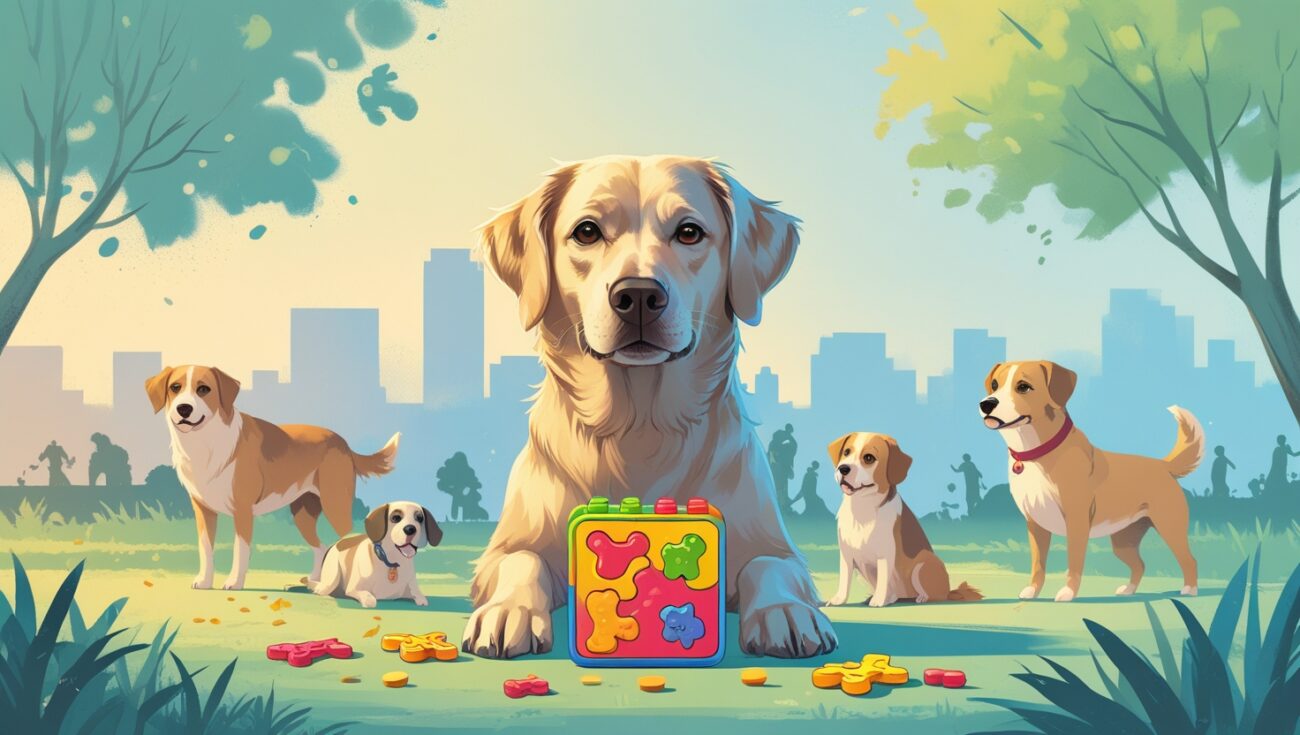How Brain Training Helps With Dog Socialization
When I first started working on socialization with my dog, I made the mistake of thinking exposure alone would fix everything. I thought the more I took her around other dogs and people, the better she’d get. But instead, she would get overstimulated, reactive, or shut down completely. What finally helped her become more calm and social? Adding brain training to the mix.
In this post, I’m going to share exactly how brain training helped my dog improve her socialization skills — and how it can help your dog too. If you want the full program that worked for us, here’s my personal link:
Brain Training for Dogs — Click here to check it out

Table of Contents
Why Brain Training Works for Socialization
The big thing I learned is this — socialization isn’t just about exposure. It’s about helping your dog build:
- Confidence
- Emotional control
- The ability to focus on you
- Impulse control in exciting situations
- The mental flexibility to handle new experiences
And that’s exactly what the right brain games can teach them.
The Changes I Saw
After adding daily brain training:
- My dog became more confident in new settings
- She was able to handle meeting new people and dogs without overreacting
- She recovered faster from stressful situations
- Her focus on me improved — even in exciting environments
- Social outings became so much easier and more fun
The Games That Helped Us
Engagement Games
Teaching my dog to focus on me was HUGE — it gave her an anchor in social situations.
Impulse Control Games
Games like “leave it” and “wait” helped her stay calm instead of reacting impulsively.
Trick Training
Learning fun new tricks built her confidence — which carried over into socialization.
Scent Work
Scent games helped her relax and stay engaged — a great way to keep her calm around other dogs.
Here’s the exact program that showed me how to use these games effectively:
Brain Training for Dogs — Full Program Here
The Results
With consistent brain training:
- My dog started greeting other dogs more calmly
- She wasn’t as reactive to new people
- She learned to disengage when she got overstimulated
- Our bond strengthened — so she looked to me for guidance
- Walks and outings became enjoyable instead of stressful
Final Thoughts
If you’re struggling with socialization issues, don’t just rely on exposure. Adding the right brain training can give your dog the mental tools they need to succeed.
This is the program that helped me and my dog turn the corner:
Brain Training for Dogs — Click here to check it out
Trust me — when your dog’s brain and emotions are in balance, socialization becomes so much easier (and way more fun!).
Before I started using brain training, I thought that taking my dog to more places or setting up more playdates would “fix” her socialization problems. But in reality, she needed the mental skills to handle those situations first.
Once I added structured brain games, I noticed how much more focused and calm she became — both at home and when out in public.
If you’re unsure how to start, this is the exact program that gave me everything I needed — step by step:
Brain Training for Dogs — Full Program Here
One of the biggest shifts I saw was how much better my dog’s emotional control became. Instead of going straight into over-arousal or reactivity, she learned to pause and think — and that made social interactions go so much smoother.
I also loved that these games taught her to look to me for guidance — a skill that made it much easier to redirect her in challenging social situations.
And because the training was always positive, it helped build her confidence — which is one of the most important things for successful socialization.
Even just 10–15 minutes of brain work a day helped her stay calmer and more balanced — which made walks, dog park visits, and outings much more enjoyable for both of us.
Another tip? Practice brain games before social outings — it helps put your dog in a focused, calm mindset before encountering new people or dogs.
I also noticed that impulse control games carried over beautifully — my dog was less likely to jump, bark, or lunge when excited.
And because these games build trust and connection, they strengthened our relationship — giving my dog the security to handle new experiences more confidently.
If you’re struggling with a dog who’s nervous, reactive, or overexcited around others — please know, brain training can help tremendously.
This is the exact program that helped my dog turn the corner:
Brain Training for Dogs — Click here to check it out
Now, my dog is far more relaxed and social — and I enjoy taking her places much more than I used to.
If you want to help your dog succeed in social situations, this is hands down the best place to start:
Brain Training for Dogs — Click here to check it out
Another big benefit I saw was how brain games helped lower my dog’s overall stress levels — which is so important for good socialization. A stressed or anxious dog won’t learn well in social situations, but when their mind is worked regularly, they’re much more balanced.
If you’re dealing with a dog who gets overwhelmed easily or struggles in group settings, this is exactly the program that helped us improve:
Brain Training for Dogs — Full Program Here
I also found that working on focus games gave my dog the ability to “tune out” distractions — helping her stay calm when other dogs were excited or noisy.
And since socialization is an ongoing process, I love that this program gives you a clear way to keep challenging your dog’s mind as they grow and progress.
Now, I can take my dog into a variety of settings — cafes, pet stores, group walks — and she handles it all with much more confidence and grace.
If you want your dog to experience the same transformation, I can’t recommend this enough:
Brain Training for Dogs — Click here to check it out

